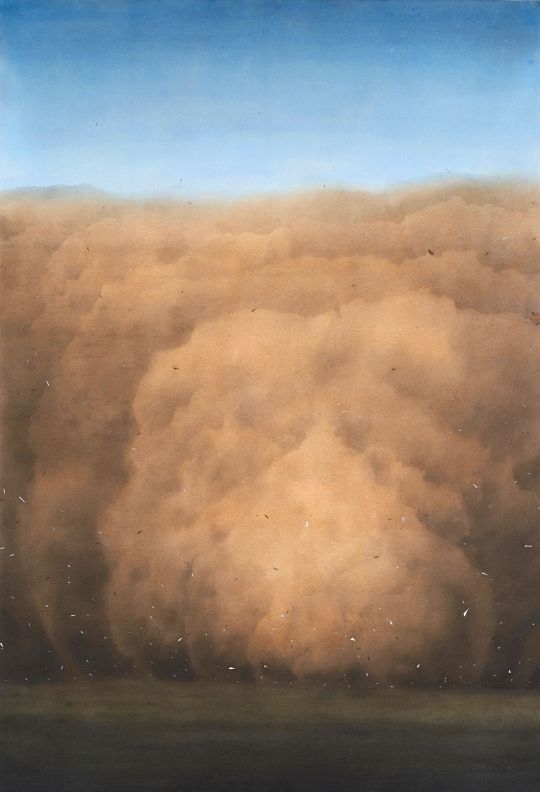#kazim ali
Text

Kazim Ali, from Inquisition; “The Tornado”
[Text ID: “All I want is to love forever, for the door to open,”]
#kazim ali#love#life#freedom#healing#excerpts#writings#literature#poetry#fragments#selections#words#quotes#lit#typography#american literature#american poetry#poetry collection
2K notes
·
View notes
Text
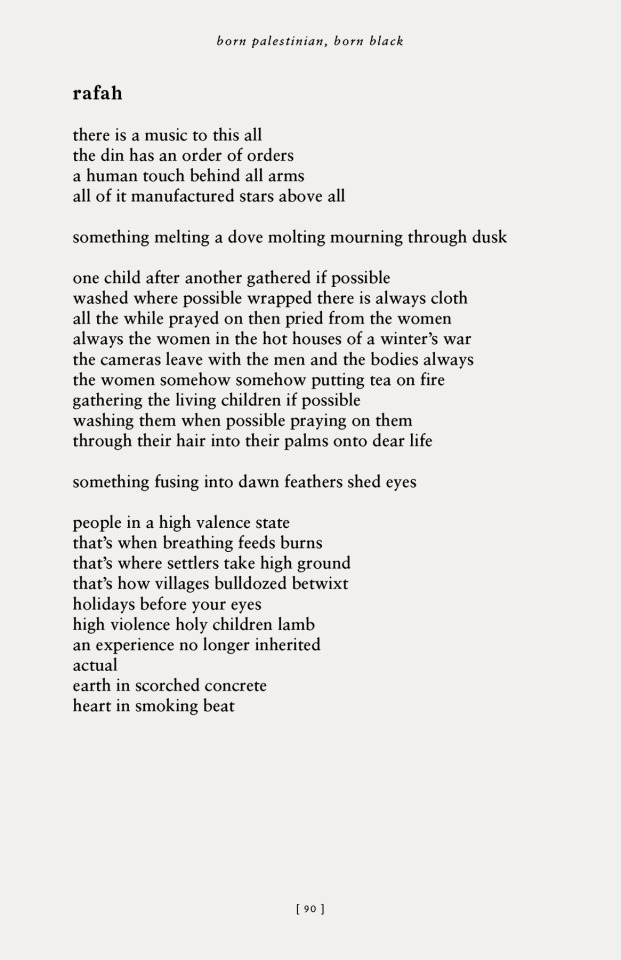
Suheir Hammad (سهير حماد), Rafah, in Born Palestinian, Born Black & The Gaza Suite, Introduction by Marco Villalobos, Afterword by Kazim Ali, UpSet Press, New York, NY, 2010, p. 90
50 notes
·
View notes
Text
Ramadan
Kazim Ali
You wanted to be so hungry, you would break into branches,
and have to choose between the starving month’s
nineteenth, twenty-first, and twenty-third evenings.
The liturgy begins to echo itself and why does it matter?
If the ground-water is too scarce one can stretch nets
into the air and harvest the fog.
Hunger opens you to illiteracy,
thirst makes clear the starving pattern,
the thick night is so quiet, the spinning spider pauses,
the angel stops whispering for a moment—
The secret night could already be over,
you will have to listen very carefully—
You are never going to know which night’s mouth is sacredly reciting
and which night’s recitation is secretly mere wind—
2 notes
·
View notes
Photo
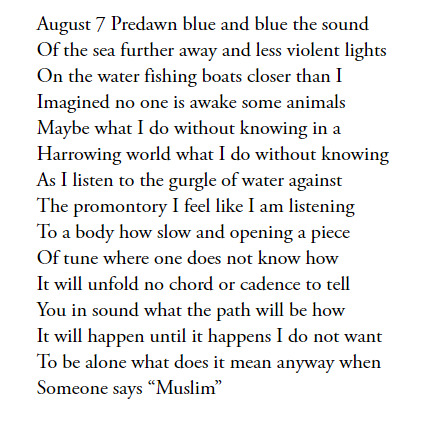
From “The Voice of Sheila Chandra” by Kazim Ali. Text ID under cut.
[Text ID: August 7 Predawn blue and blue the sound
Of the sea further away and less violent lights
On the water fishing boats closer than I
Imagined no one is awake some animals
Maybe what I do without knowing in a
Harrowing world what I do without knowing
As I listen to the gurgle of water against
The promontory I feel like I am listening
To a body how slow and opening a piece
Of tune where one does not know how
It will unfold no chord or cadence to tell
You in sound what the path will be how
It will happen until it happens I do not want
To be alone what does it mean anyway when
Someone says “Muslim”]
8 notes
·
View notes
Text
A book of poems is an abbey of aspirants, each reciting a line to herself in meditation.
“On the Line” by Kazim Ali
1 note
·
View note
Text
With thick strokes of ink the sky fills with rain.
Pretending to run for cover but secretly praying for more rain.
Over the echo of the water, I hear a voice saying my name.
No one in the city moves under the quick sightless rain.
The pages of my notebook soak, then curl. I’ve written:
“Yogis opened their mouths for hours to drink the rain.”
The sky is a bowl of dark water, rinsing your face.
The window trembles; liquid glass could shatter into rain.
I am a dark bowl, waiting to be filled.
If I open my mouth now, I could drown in the rain.
I hurry home as though someone is there waiting for me.
The night collapses into your skin. I am the rain.
— Kazim Ali, "Rain".
0 notes
Text
Home
by KAZIM ALI
My father had a steel comb with which he would comb our hair.
After a bath the cold metal soothing against my scalp, his hand cupping
my chin.
My mother had a red pullover with a little yellow duck embroidered
on it and a pendant made from a gold Victoria coronation coin.
Which later, when we first moved to Buffalo, would be stolen from
the house.
The Sunn’i Muslims have a story in which the angels cast a dark mark
out of Prophet Mohammad’s heart, thus making him pure, though the
Shi’a reject this story, believing in his absolute innocence from birth.
Telling the famous Story of the Blanket in which the Prophet covers
himself with a Yemeni blanket for his afternoon rest. Joined under
the blanket first by his son-in-law Ali, then each of his grandchildren
Hassan and Hussain and finally by his daughter Bibi Fatima.
In Heaven Gabriel asks God about the five under the blanket and
God says, those are the five people whom I loved the most out of all
creation, and I made everything in the heavens and the earth for
their sake.
Gabriel, speaker on God’s behalf, whisperer to Prophets, asks God, can
I go down and be the sixth among them.
And God says, go down there and ask them. If they consent you may go
under the blanket and be the sixth among them.
Creation for the sake of Gabriel is retroactively granted when the group
under the blanket admits him to their company.
Is that me at the edge of the blanket asking to be allowed inside.
Asking the 800 hadith be canceled, all history re-ordered.
In Hyderabad I prayed every part of the day, climbed a thousand steps
to the site of Maula Ali’s pilgrimage.
I wanted to be those stairs, the hunger I felt, the river inside.
I learned to pronounce my daily prayers from transliterated English
in a book called “Know Your Islam,” dark blue with gold calligraphed
writing that made the English appear as if it were Arabic complete with
marks above and below the letters.
I didn’t learn the Arabic script until years later and never learned the
language itself.
God’s true language: Hebrew. Latin. Arabic. Sanskrit.
As if utterance fit into the requirements of the human mouth.
I learned how to find the new moon by looking for the circular absence
of stars.
When Abraham took Isaac up into the thicket his son did not know
where he was being led.
When his father bound him and took up the knife he was shocked.
And said, “Father, where is the ram?”
Though from Abraham’s perspective he was asked by God to sacrifice
his son and proved his love by taking up the knife.
Thinking to himself perhaps, Oh Ismail, Ismail, do I cut or do I burn.
I learned God’s true language is only silence and breath.
Fourth son of a fourth son, my father was afflicted as a child and
as was the custom in those days a new name was selected for him to
protect his health.
Still the feeling of his rough hand, gently cupping my cheek, dipping the
steel comb in water to comb my hair flat.
My hair was kept so short, combed flat when wet. I never knew my hair
was wavy until I was nearly twenty-two and never went outside with wet
and uncombed hair until I was twenty-eight.
At which point I realized my hair was curly.
My father’s hands have fortune-lines in them cut deeply and dramatic.
The day I left his house for the last time I asked him if I could hold his
hand before I left.
There are two different ways of going about this.
If you have known this for years why didn’t you ask for help, he
asked me.
Each time I left home, including the last time, my mother would hold a
Quran up for me to walk under. Once under, one would turn and kiss
the book.
There is no place in the Quran which requires acts of homosexuality to
be punishable by lashings and death.
Hadith or scripture. Scripture or rupture.
Should I travel out from under the blanket.
Comfort from a verse which also recurs: “Surely there are signs in this
for those of you who would reflect.”
Or the one hundred and four books of God. Of which only four are
known—Qur’an, Injeel, Tavrat, Zubuur.
There are a hundred others—Bhagavad-Gita, Lotus Sutra, Song of
Myself, the Gospel of Magdalene, Popul Vuh, the book of Black Buffalo
Woman—somewhere unrevealed as such.
Dear mother in the sky you could unbuckle the book and erase all the
annotations.
What I always remember about my childhood is my mother whispering
to me, telling me secrets, ideas, suggestions.
She named me when I moved in her while she was reading a calligraphy
of the Imam’s names. My name: translated my whole life for me as
Patience.
In India we climbed the steps of the Maula Ali mountain to the top,
thirsting for what.
My mother had stayed behind in the house, unable to go on pilgrimage.
She had told me the reason why.
Being in a state considered unacceptable for prayers or pilgrimages.
I asked if she would want more children and she told me the name she
would give a new son.
I always attribute the fact that they did not, though my eldest sister’s first
son was given the same name she whispered to me that afternoon, to my
telling of her secret to my sisters when we were climbing the stairs.
It is the one betrayal of her—perhaps meaningless—that I have never
forgiven myself.
There are secrets it is still hard to tell, betrayals hard to make.
You hope like anything that though others consider you unclean God
will still welcome you.
My name is Kazim. Which means patience. I know how to wait.
1 note
·
View note
Text

When The Night Agrees To Speak To Me by Ananda Devi
My rating: 4 of 5 stars
This is a lovely collection of poetry by a poet from Mauritius who writes in French and translated lovely by Kazim Ali. The collection is very brief, though, and half of the book is taken up with an interview between the poet and the translator as well as some literary criticism of her work. While these add some to the understanding of the poems, the poems themselves do not need all this background material; they stand strongly on their own about issues of femininity, sexuality, and colonial politics.
[I received an advanced e-galley of this book from Netgalley.]
View all my reviews
1 note
·
View note
Photo
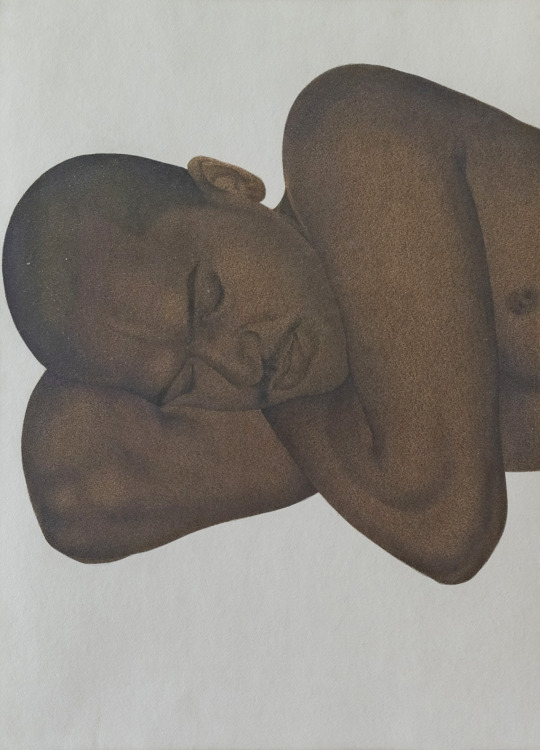
Ali Kazim, Sleep III, 2008, pigments on wasli paper, 29 ⅛ x 21 ¼ in (74 x 54 cm)
1K notes
·
View notes
Text

Ali Kazim (Pakistani, 1979), Night Traveller I, 2008. Pigment on wasli, 50 x 32 cm.
120 notes
·
View notes
Text
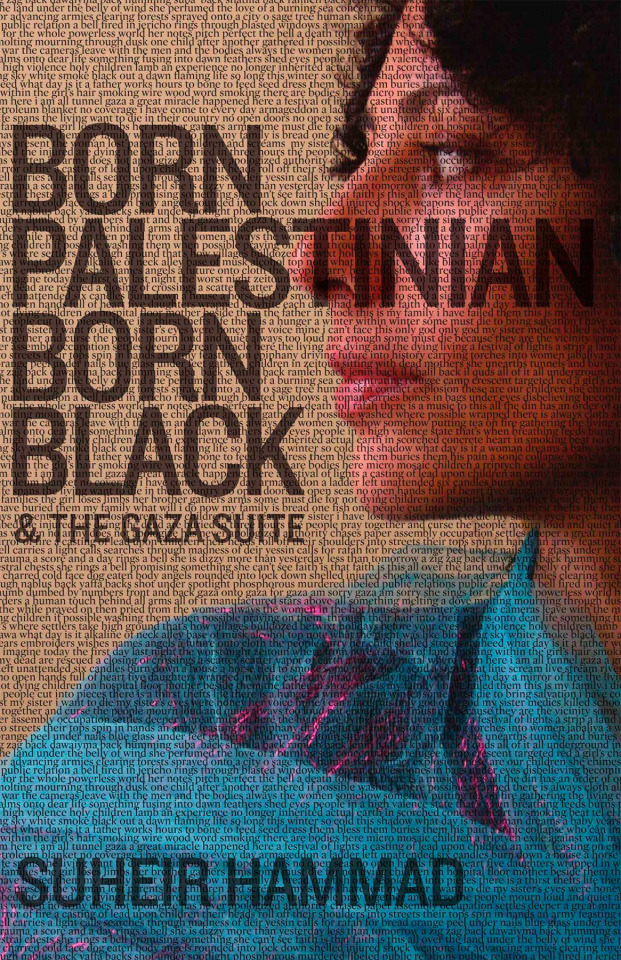
Suheir Hammad (سهير حماد), Born Palestinian, Born Black & The Gaza Suite, Introduction by Marco Villalobos, Afterword by Kazim Ali, UpSet Press, New York, NY, 2010
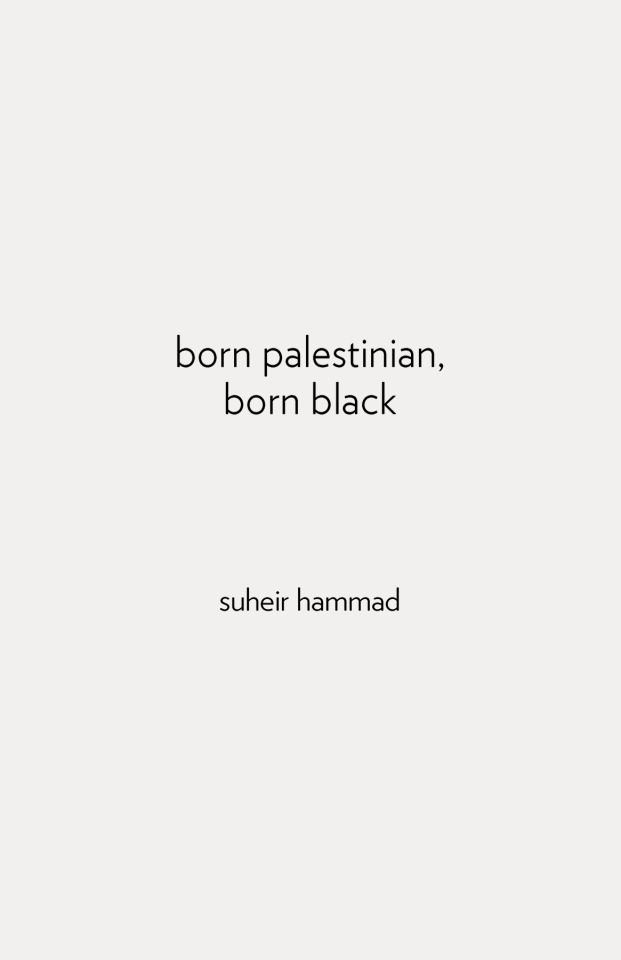
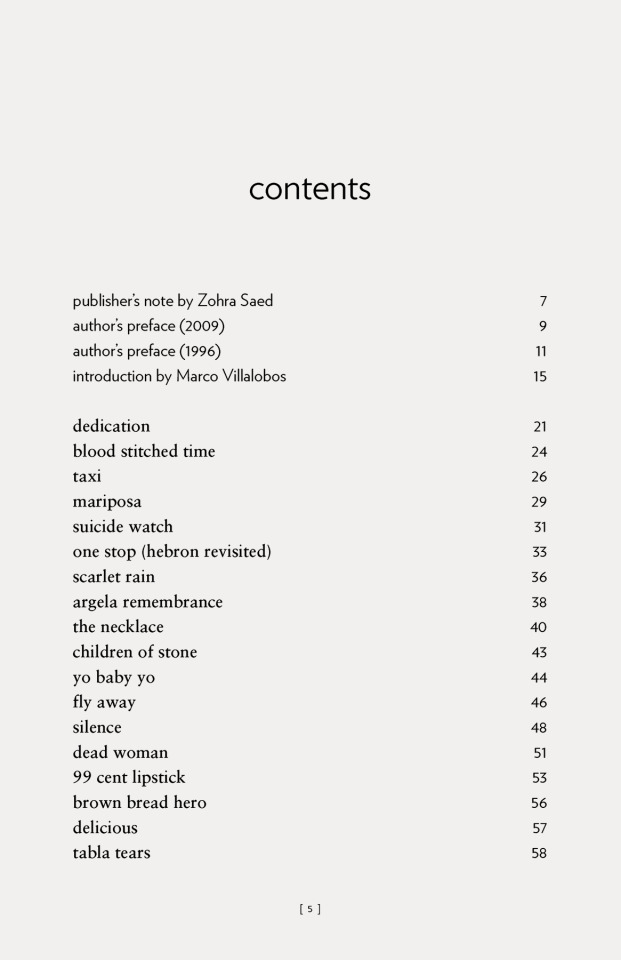


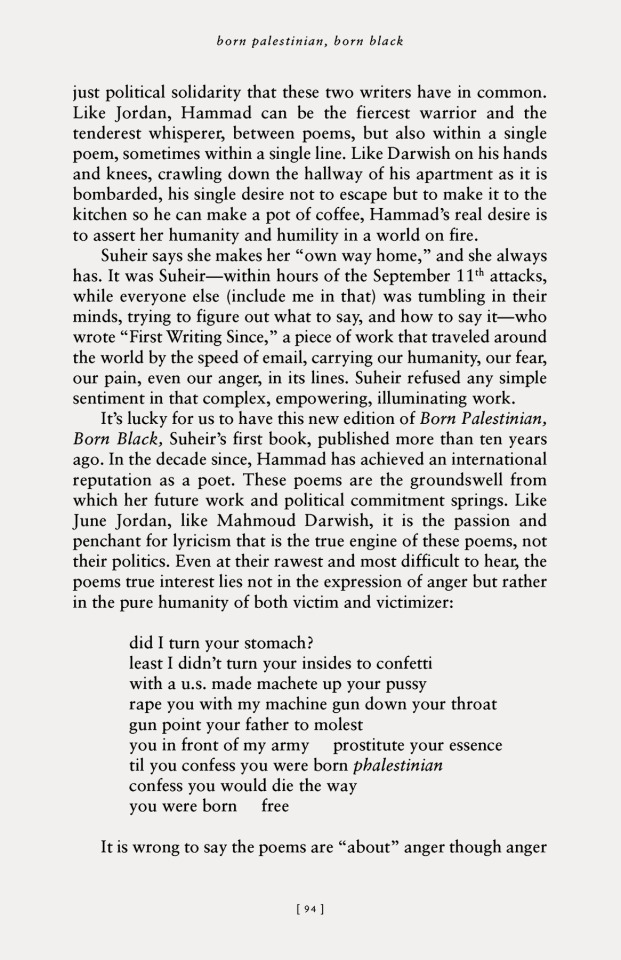
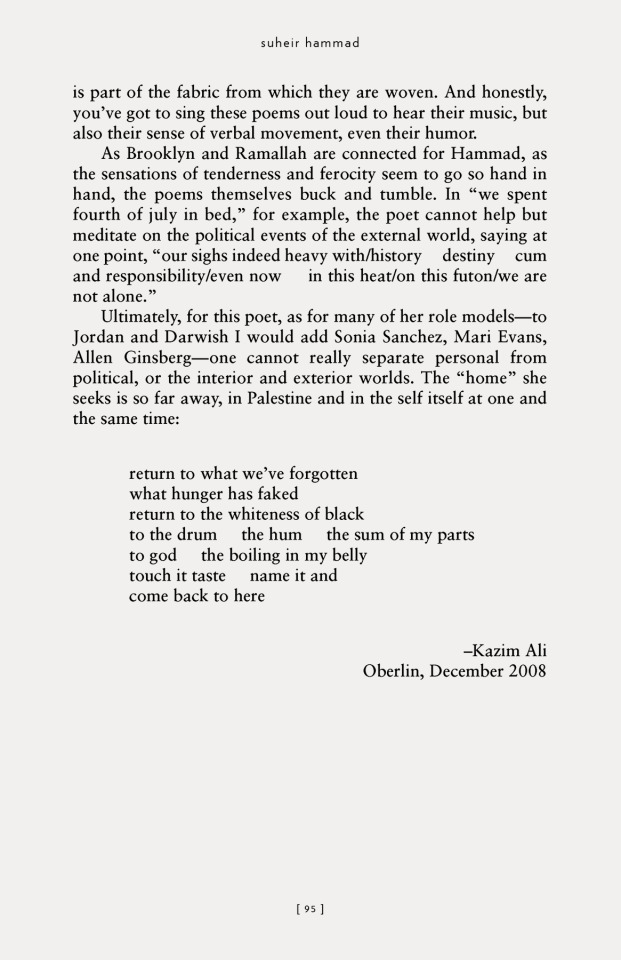
Cover Photograph: Tarek Aylouch
Cover and Text Design: Aaron Kenedi
#graphic design#poetry#book#cover#book cover#suheir hammad#marco villalobos#kazim ali#tarek aylouch#aaron kenedi#upset press#2010s
27 notes
·
View notes
Text

Interview of "RAZA KAZIM" with Host Muhammad Ali Raza (Daily Independent News Paper)
TODAY, TWO RAZA’S ARE SITTING TOGETHER
Muhammad Ali Raza is a program anchor and journalist of Pakistan who conducted a written interview with the famous philosopher Raza Kazim. I have reached that now it has become very difficult to communicate with him, so I am looking for your written article. I hope knowing about Raza Kazim will be very beneficial and full of knowledge for you.
He invented a musical instrument, the Sagar Veena, of which his daughter Noor Zehra is the only player in Pakistan, and through her is the grandfather of the famous pop-rock band Noori duo, Ali Noor and Ali Hamza, while another daughter, Baela Raza Jamil, is one of Pakistan's leading educators, with major contributions in the field of education reform. He is also the uncle of actress and model Juggan Kazim. Raza’s journey of rejecting ugliness and pursuing human happiness, which got him involved with society, politics and the questions of his time, began in 1942, at the age of 12, when he became a part of the Indian Congress movement. After 1945 he moved away from the Congress movement and got involved with the Muslim League movement working for an independent Pakistan. After doing his LLB in 1953 he began his law practice and from 1959 onwards became Advocate Supreme Court of Pakistan. By 1965 he began to have serious doubts about the validity of the Marxist ideology but he persevered with it till 1970. In between, in 1962, he also designed the world’s first shrimp factory ship which was made by a team of Norwegian naval architects and engineers.
After 1970 he began his quest of discovering a post-Marxist theory of social change, yet another attempt to address the issue of human happiness, in the light of the explosive progress in science and technology and developments in Brain Sciences, Astrophysics & Particle Physics. In 1995, he set up ‘Sanjan Nagar Institute of Philosophy and Arts’ (SIPA), as a laboratory for developing and testing this emerging theory,
which he calls ‘Evolutionary Mentology’, and has been funding it from his Law practice ever since. In the same year he also started a parallel organization called Sanjan Nagar Public Education Trust (SNPET) which runs a free school for girls in a working class area of Lahore. He currently devotes his time to the Sanjan Nagar Institute of Philosophy & Arts, a non-profit organization consisting of a team of fifty (now growing) full-time members working in the fields of Philosophy, Music and Photography. The Institute is currently based in Lahore.
It is an honor for me to meet Raza Kazim. I am sitting with a person who is not only a philosopher but also a person with a very beautiful heart. He dedicated his life to serve country. This is my introductory meeting. I wanted to record Raza's interview but life did not cooperate. His age is around 95 years now I talked to Raza a lot while he couldn't even speak, he talked like children but as a journalist I will say this about Raza that "Pakistan has been made big by such people and it is because of him. In the love of the soil of the country, they turn themselves into soil, we should not only value such personalities, but it is also our duty to protect them.” May God bless Raza Kazmi with thousands of blessings and shower his mercy on him always.
https://sanjannagar.wordpress.com/raza-kazim/
#breaking news#celebrity news#world news#latest news#article#report#news on gaza#us news#palestine news#Host Muhammad Ali Raza#Host Muhammad Ali Raza News#Host Muhammad Ali Raza Family#Kazim Raza#Raza Kazim Family#Raza Kazim Family about#Raza Kazim Death#Juggan Kazim#Jugan Kazim Interview#Jugan Kazim Family#Noori Band#Noori Band Pakistan#Host Muhammad Ali Raza Wife#Host Muhammad Ali Raza with Raza Kazim#Host Muhammad Ali Raza Son#pakistan news#india news#bangladesh#Nigerian News#Host Muhammad Ali Raza Interview#Host Muhammad Ali Raza Latest Update
1 note
·
View note
Photo

Home by Kazim Ali. Text ID under cut.
[Text ID: My mother had stayed behind in the house, unable to go on pilgrimage.
She had told me the reason why.
Being in a state considered unacceptable for prayers or pilgrimages.
I asked if she would want more children and she told me the name she
would give a new son.
I always attribute the fact that they did not, though my eldest sister’s first
son was given the same name she whispered to me that afternoon, to my
telling of her secret to my sisters when we were climbing the stairs.
It is the one betrayal of her—perhaps meaningless—that I have never
forgiven myself.
There are secrets it is still hard to tell, betrayals hard to make.]
2 notes
·
View notes
Text
favourite poems of april
daniel nyikos potato soup
mary oliver when death comes
walt whitman leaves of grass: “whoever you are holding me now in hand”
kazim ali refuge temple
d.a. powell republic
toi derricotte natural birth: “november”
cathy song the age of reptiles
dante émile sharing a cigarette with joan of arc
rigoberto gonzalez other fugitives and other strangers: “the strangers who find me in the woods”
mary oliver new and selected poems: “the summer day”
d.a. powell chronic: “continental divide”
kahlil gibran the seven selves
franz wright night walk
mary oliver the black snake
martha collins day unto day: “over time”
ada limón the bird knows he is going to die and wishes not to (recommended to me by @craigslistening <33)
aish (@sapientes) rubin’s vase
tom pickard nectarine
alicia ostriker song
d.a. powell the expiration date on the world is not quite the same as the expiration date on my prophylactic
james dickey the whole motion: collected poems 1945-1992: “the strength of fields”
everett owens strength from a mountain
denise levertov o taste and see: new poems: “the secret”
david st. john the place that inhabits us: “peach fires”
robinson jeffers their beauty has more meaning
thomas centolella almost human: “the hope i know”
elizabeth willis address: “in strength sweetness
amiri baraka s o s: poems 1961-2013: “tender arrivals”
mary oliver the black walnut tree
stephen spender new collected poems: “song”
support me
#tbr#tbr list#poems#poetry#daniel nyikos#potato soup#walt whitman#leaves of grass#whoever you are holding me now in hand#toi derricotte#natural birth#november#dante emile#dante émile#sharing a cigarette with joan of arc#rigoberto gonzalez#other fugitives and other strangers#the strangers who find me in the woods#da powell#d.a. powell#chronic#continental divide#kahlil gibran#martha collins#day unto day#over time#ada limón#the bird knows he is going to die and wishes not to#aish#sapientes
263 notes
·
View notes
Text
belated Ramadan Mubarak!
I try to do a bit of reading every Ramadan, so, for accountability, and so that when I inevitably don’t get through them I can find my list next year—here's my (extremely very ambitious) reading list for this year!
(suggestions are very welcome, with the warning that I very much may not get through them. this year, I’m trying to learn more about Islam and liberation theology and I’m trying to read more abolitionist texts, and of course my standard queer Muslim books, I’m trying to read more poetry by Muslim poets I don’t know well, and every Ramadan I try and only read fiction by Muslim authors, so there’s some sff on here too!)
non-fic:
memoirs:
We Have Always Been Here by Samra Habib (reread)
Hijab Butch Blues by Lamya H
The Colour of God by Ayesha S Chaudhry
Love is an Ex-Country by Randa Jarrar
A Dutiful Boy by Mohsin Zaidi
other nonfic:
Islam and Anarchism by Mohamed Abdou
We Do This Til We Free Us by Mariame Kaba (reread-ish? I never fully finished it)
Let This Radicalise You by Kelly Hayes and Mariame Kaba
Qur'an and Woman by Amina Wadud (which I also never finished)
The Women's Khutbah Book by Fatima Seedat and Sa'diyya Shaikh
Qur’an of the Oppressed: Liberation Theology and Gender Justice in Islam by Shadaab Rahemtulla
With Stones in Our Hands: Writings on Muslims, Racism, and Empire by Sohail Daulatzai and Junaid Rana
fiction:
The Candle and the Flame by Nafiza Azad
Mirage by Somaiya Daud (yes I still have not read this)
The Light at the Bottom of the World by London Shah
Roses, in the Mouth of a Lion by Bushra Rehman
A Tempest of Tea by Hafsah Faisal
poetry:
Halal If You Hear Me (anthology)
If They Come For Us by Fatimah Asghar (reread)
Hagar Poems by Mohja Kahf
Bad Diaspora Poems by Momtaza Mehri
The Fortieth Day by Kazim Ali
Black Seeds by Tariq Touré
Postcolonial Banter by Suhaiymah Manzoor-Khan
#books#salmon’s muslim tag#text post#my post#yes it’s a very long reading list#idk I am in a reading place right now and I’m running some stuff on#spiritual connection and reflection for queer Muslims#later in the month#using some truly incredible resources that others have prepared but I gotta do some prep of my own too yknow#and idk I haven’t really been connected to Islamic learning in a while?#and I like doing it!#I think it’s important for the kind of stuff and reflection I do#so let’s see how well this goes#I feel like I should’ve made a different Ramadan Mubarak post as well but I did not so#you get my reading list instead
17 notes
·
View notes
